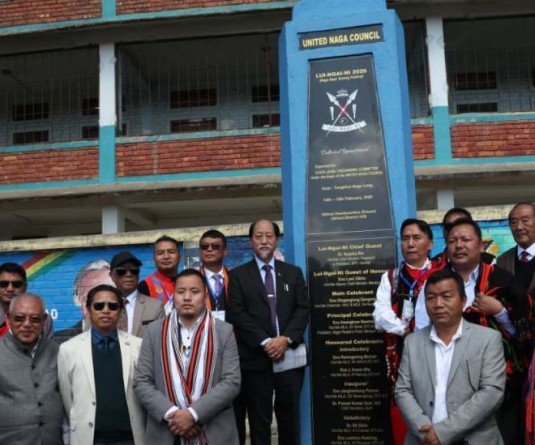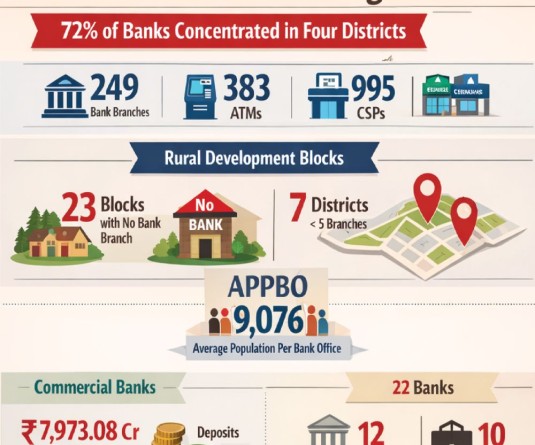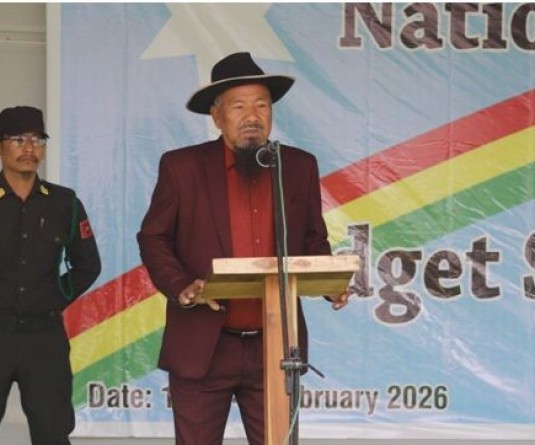Vendor selling vegetables and other food items in New Market, Dimapur. (Morung Photo)
‘All workforce shall be covered by social security, welfare schemes’
Our Correspondent
Kohima | August 26
The Nagaland Sustainable Development Goals (SDGs) Vision 2030 in its Goal-8 on ‘Decent Work and Economic Growth’ aim to promote sustained, inclusive and sustainable economic growth, full and productive employment and decent work for all.
The vision is to ensure equal and equitable access to skill development for youth and promotion of entrepreneurs. The target for 2030 includes; increase workforce participation rate for women, promote start-ups by women entrepreneurs, increase skilled labour force in the state, all workforce of the state shall be covered by social security and welfare schemes and increase the number of Micro, Small and Medium Enterprises (MSME) in the state.
STRATEGIES FOR SUCCESS:
Recognition of prior learning
Under the recognition of prior learning programme, the Department of Employment, Skill Development & Entrepreneurship has planned to conduct skill certification programme for 25,000 beneficiaries currently engaged in the agriculture sector and 15, 000 loin loom weavers.
Special project for loin weavers
Under this special project for loin weavers a re-skilling and skill upgrading has been planned or 2,000 loin weavers.
Aligning the weavers to the market by introducing modern design that is as per the demand of the markets is a focus area as well, the vision statement stated.
SANKALP project
Under Skill Acquisition and Knowledge Awareness for Livelihood Promotion (SANKALP) project, inclusion of women in skill development through demand driven skilling intervention is being planned.
To overcome the challenges of accessibility to skill development, a mobile van (Mobile Skill Morung), which generates awareness on skill development initiatives and training is being planned to take skill development of every remote corner of the state.
The department will be setting one Micro Entrepreneurs Start-Up Incubation Centre, which will work towards identifying the potential enterprises and support them in the development of their business plan, creating forward linkages with the market and also identity credit linkages and investors who can support their start-ups.
Development of human resource
Human resource requirements at the grass root level can be very dynamic, shifting from one job to another, the vision statement stated.
“Therefore, training a person trained for one specific job role may not be enough to sustain his/her livelihood. It is proposed to provide skilling across multiple domains for generating multi-skilled handymen for every cluster of villages to meet the rural demands and to ensure that every cluster of villages is self-sufficient in terms of local human resources demand. The community will be directly involved in identification of demands and mobilization of the youth who can be skilled to adorn the role of multi-skilled handyman. Under this initiative, it has been planned to skill 200 youth as multi-skilled persons by skilling them across multiple jobs,” the vision statement stated.
Recruit, train and display model
The construction industry in the state is experiencing a vertical growth over the last decade with major construction works happening across the state.
However, the requirement of human resources across these particular segments of industry has been largely untapped due to lack of skilled manpower.
The vision statement stated that engaging the industry directly to ensure outcome driven skill development, the Recruit, Train and Deploy model is proposed to flexibly cater to the requirements of the construction industry and assist the youth of the state to get employment.
It is planned to engage the construction industry under this model to train 250 youth on industry relevant practices for livelihood opportunities, it stated.
School of Excellence in Nagaland
Setting up of School of Excellence on the grounds of World Skills India is to promote and groom young leaders and prepare them for the future, it stated.
The School of Excellence will provide training as per global standards.
Under this model, it is proposed to identify and adopt a school and transform it to a World Skills India School of Excellence.
The proposed School of Excellence is planned to set up as a collaborative effort between the state government and the National Skill Development Corporation (NSDC) where the state government will identify and adopt the school and NSDC will support in transforming it to a School of Excellence.
Setting up of ITIs
In order to give access to the skilling programmes though ITI, four new ITI are proposed to be established including the aspiration district Kiphire under the centrally sponsored scheme, enhancing skill development infrastructure for NE states and Sikkim.
Nagaland Building and other Construction Workers bureau
Having realized that the construction sector is one of the most potential sectors for employment of youth in the state, the Department of Labour, Nagaland has proposed to construct a construction workers bureau and train 15,000 youth by 2030 with an aim to replace the entire migrant workers by the next 10 to 15 years.
Livelihood building through tourism
The vision statement stated that tourism contributes immensely to employment generation and livelihood building.
In this regard, the Department of Tourism has successfully conducted various skill development trainings on tourist guide training, home stay orientation, orientation programme for taxi drivers and hands-on-skill training on tourism, and hospitality in five Government Higher Secondary Schools in Mon, Tuensang, Mokokchung, Dimapur and Kohima.
“Specific infrastructure such as tourist accommodation at or near the vicinity of popular tourist attraction spots and destinations are being undertaken by the Department of Tourism.
Under the community-based initiatives of rural tourism, various initiatives has been introduced and will be continued.
Introduction of the Village Tourism Development Board which is responsible for engaging with local communities in order to enhance livelihoods and promote responsible tourism at the village level.
The local community is the decision-maker while implementing projects at the particular destination that helps to include local communities in a more seamless manner.
Training and workshops organized at the community level to enhance local participation. This includes community tour operations, cultural tourist activities, traditional cuisines and creativity in showcasing cultural music, dances etc.
Income and employment generation through sericulture production
The thrust area of the silk sector includes greater emphasis on production and integration of value-added products diversification and quality silk goods for domestic sales and exports.
Growth in silk production will enhance income and employment generation activity in the state, the vision statement stated.
In this regard, the Department of Sericulture has adopted the following strategy- plantation and silkworm rearing, bringing more farmers and stakeholders for all varieties of silkworm of enhancing production, strengthening and establishment of Silkworm Seed Multiplications Centres in all districts, establishing of spinning and reeling units, weaving, dying, product diversification, quality silk production for export and increased capacity utilization with sophisticated designs and product mix with the use of latest technologies and cocoon markets for buying and selling silk raw materials like cocoons and silk yarn.
Revised minimum wage rate of the state
The vision statement stated that minimum wage of Nagaland remains the lowest in the country.
“With the current scenario of the market and the persisting inflation rate, it is very difficult for a person or household to lead a decent and healthy life. A constructive relook into the minimum wage rate of the state would have a far reaching positive impact on society and will raise the status of the local, grassroot-level workers and reaffirm the dignity of labour,” the vision statement stated.
Livelihood generation through high value medicinal and aromatic plants
To harness the rich potential of bio-resources of the state, production of high value and low volume indigenous medicinal and aromatic plans which has economic potential will be encouraged in the state.
In this regard, the Nagand Bio-Resource Mission has indentified four plans.
It includes; setting up of technology centres in collaboration with the Ministry of Micro, Small and Medium Enterprise, for promotion of medical and aromatic plants through infrastructure development in Nagaland by 2023, to set up a herbal gardens in different agro-climatic zones which will create a reliable seed source and gene bank and restoration off ecosystems in selected degraded lands, jhum fields and coal mining areas of the state.
Current status of Nagaland
• The state has 99 MSME units registered under Online Udyog Aadhaar Registration and 1, 280 registered MSMEs.
• Nagaland has 8 governmental Industrial Training Institutes (ITIs) offering 22 trades for skill based training to unemployed youth of the state.
• During 2018-19 financial year, 3,707 workers were covered under Employees State Insurance (ESI) Act in the state.
• Nagaland has the highest unemployment rate among all states at 21.4 per cent.






